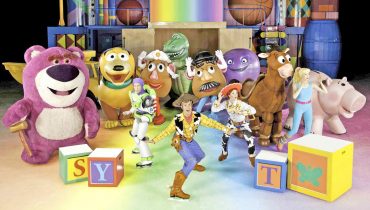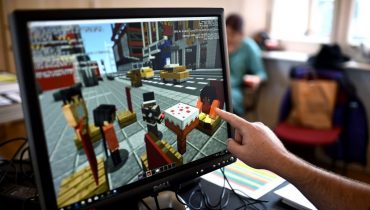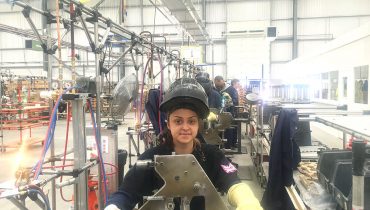 What’s the job?
What’s the job?
Theatre performer.
Who would I be working for?
Most actors are self-employed, so technically you’ll be working for yourself. But once you’re in a show, you’ll be hired by the production company and get a contract.
What do they do?
Oh, you don’t need to ask that question, do you?! They act, sing, dance and generally entertain anyone who goes to the theatre.
What sort of work is involved?
- Rehearsals, rehearsals, rehearsals! Even once the show starts, you will probably be required to rehearse throughout the day to make sure that any new actors are up to scratch with the show, or perhaps rework a part of the show that isn’t working as well as it should.
- But before you step into the rehearsal room, you’ll need to have researched the character and learnt your lines.
- You’ll have to attend costume fittings so the wardrobe department can make sure that they fit perfectly and do any alterations that are needed.
- While the show is going on, you may need to prepare for and travel to other auditions for future work.
- You may also have to do promotional work for the show, such as doing interviews with journalists.
What skills do I need?
- Acting talent and the ability to try new styles.
- A strong singing voice, if you want to do musicals.
- Dancing ability, preferably in lots of different styles. Ballet, jazz and tap are very common and a requirement for lots of musical shows.
- You’ll need to be very disciplined and resilient to rejection from casting directors. Each show only has a certain number of roles, so even the very best don’t always get the parts they want.
- An excellent memory to learn scripts and songs – usually, you’ll need to learn these quickly.
- Determination and persistence.
- If you play an instrument, this is very helpful. Some shows ask actors to play instruments live on stage.
- Any other talents you have, such as juggling, tumbling and gymnastics, might come in useful for different shows.
What qualifications do I need?
Most actors will have spent time training at a drama school before going on to professional jobs. But with talent, luck, determination and experience of working with a company and on stage, you can find work without training.
What hours would I work?
The hours in the role can be long and irregular, with shows taking place most evenings in the week. You may also have to perform in daytime shows (called matinees). Rehearsals and auditions take place during the day, so you’ll need time to travel to jobs and auditions, too. If you are part of a touring production, you can be away from home for a long time. Even though the hours are long, if you love theatre, you won’t mind it at all!
Where would I work?
In a theatre or on a film or TV set.
How much would I get paid?
There is no set income for actors, and only the best and well-known actors earn a high salary. However, there is a union called Equity that supports actors and sets a minimum rate of pay for the UK’s theatres – if you’re performing in a large theatre you’ll get more, and London theatres pay more, too.
Can I do work experience?
The best thing about acting is you can get work experience anywhere! There are lots of acting classes that you can attend in the evenings or at the weekend, or you can even learn acting skills from your computer, via videos on YouTube. Make sure you take part in your school shows and local amateur shows to gain real, on-stage experience. These will build your confidence and you can learn lots from the other actors.
How might the job change in the future?
Theatre, film and TV will almost certainly always be in our world, so this career is unlikely to change much in the future. Whether you’re acting in a theatre, a film or a TV advert or soap, the arts industry will always have jobs available.





























